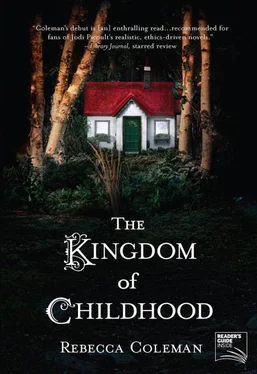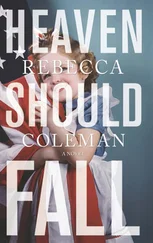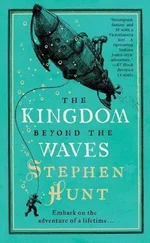Rebecca Coleman - The Kingdom of Childhood
Здесь есть возможность читать онлайн «Rebecca Coleman - The Kingdom of Childhood» весь текст электронной книги совершенно бесплатно (целиком полную версию без сокращений). В некоторых случаях можно слушать аудио, скачать через торрент в формате fb2 и присутствует краткое содержание. Город: Ontario, Год выпуска: 2011, ISBN: 2011, Издательство: MIRA Books, Жанр: Современная проза, на английском языке. Описание произведения, (предисловие) а так же отзывы посетителей доступны на портале библиотеки ЛибКат.
- Название:The Kingdom of Childhood
- Автор:
- Издательство:MIRA Books
- Жанр:
- Год:2011
- Город:Ontario
- ISBN:978-1-4592-1383-8
- Рейтинг книги:5 / 5. Голосов: 1
-
Избранное:Добавить в избранное
- Отзывы:
-
Ваша оценка:
- 100
- 1
- 2
- 3
- 4
- 5
The Kingdom of Childhood: краткое содержание, описание и аннотация
Предлагаем к чтению аннотацию, описание, краткое содержание или предисловие (зависит от того, что написал сам автор книги «The Kingdom of Childhood»). Если вы не нашли необходимую информацию о книге — напишите в комментариях, мы постараемся отыскать её.
was a semifinalist in the 2010 Amazon Breakthrough Novel Competition. An emotionally tense, increasingly chilling work of fiction set in the controversial Waldorf school community, it is equal parts enchanting and unsettling and is sure to be a much discussed and much-debated novel.
The Kingdom of Childhood — читать онлайн бесплатно полную книгу (весь текст) целиком
Ниже представлен текст книги, разбитый по страницам. Система сохранения места последней прочитанной страницы, позволяет с удобством читать онлайн бесплатно книгу «The Kingdom of Childhood», без необходимости каждый раз заново искать на чём Вы остановились. Поставьте закладку, и сможете в любой момент перейти на страницу, на которой закончили чтение.
Интервал:
Закладка:
Rebecca Coleman
THE KINGDOM OF CHILDHOOD
A Novel
To Catherine
“The wiser being in us leads us to this person because of a relationship in a previous life… We are led to this person as though by magic. We now reach a manifold and intricate realm…our youthful energies begin to decline. We move past a climax, and from there we move downward.”
“You have no idea how unimportant is all that the teacher says or does not say on the surface, and how important what he himself is as teacher.”
—Rudolf SteinerPrologue
In Bavaria the snow is always very deep. Once the first flakes fall it quickly buries everything that rests on the country earth: hedgehog nests, lost underpants, drawings of a crucified Jesus clumsily wrought in colored pencil, worn bars of Fels-Naptha laundry soap good for removing most stains. I have seen all of these things vanish beneath that snow that rots everything, and if ever there was anything colder or more beautiful than a German winter I have yet to experience it.
But when I was a girl of only ten, stumbling through my first months in that country where I was more alone than I have ever been before or since, where even my teachers babbled nonsensical words at me and my mother’s mind grew knottier by the day, I could hardly understand that I should appreciate such loveliness with my whole heart, because, rest assured, things would get worse for me. That year I felt home sick for Baltimore, where the winter sky teased for months and then, perhaps late in February, would shake loose its clouds in an orgy of the stuff that snapped power lines, threw cars into a whirl, and brought our modest, industrious little city to its knees. I preferred a good crisis to a dependable case of cabin fever. But in any case I spent much of that winter outdoors, with my mother gone, my father putting the house to other uses.
Every day I had to stomp through the drifts to catch the school bus. Back then we all wore dresses like Caroline Kennedy, our skirts swirly and pert and often impractical, and what a cross that was to bear. The icy water would seep through my tights and then I’d be bone-cold until lunchtime.
One morning, it must have been a Saturday I suppose, I went out to play in that snow. It was a fresh snowfall and still looked magical. We had learned a song in school, in Ger man of course, about a walk through the snow, and I sang it as I marched through the field across from my house, turning around to look at my boot prints. I didn’t understand all the words, but the song had a very sweet tune, ethereal, you would say. And amid snow everything seems so very silent, you know, I imagine I must have enjoyed how clear and alone my voice sounded.
Down the road lived my classmate Daniela and her brother Rudi, who was older and went to the high school. I often spent time in the barn with him in the afternoons, biding the last of the daylight in the quiet and the peace of nature, away from our rented home. Well, I suppose he must have heard me while he was working in the barn, because next thing I knew he was waving his big hand from across the field, and then he bounded over to me in those thick rubber boots, calling, Judy, Judy. He asked me if I liked to sled. I told him I did, even though my mother always forbade it because she said it was too dangerous. But I thought it sounded exciting, because when I was small she had often read to me from a book of children’s poetry, and I remembered the poem that began—
Come fly with me, said the little red sled
I’ll give you the wings of a bird, it said
—and beside it there was a drawing of a little Flexible Flyer with a smiling face. He told me his sister Daniela had a cold and couldn’t go, but that he would take me if I liked. And so I ignored my mother’s warnings, and I went with him.
He fetched a sled from the barn—it was a toboggan, really—and we walked through the field to the churchyard. First we passed the shrine to the Virgin Mary, and then there was an old graveyard, and downhill from it, an empty lawn covered by a smooth snowdrift. The hill was quite steep in some places, and in others, not so steep but very long. I was afraid to go down by myself, so Rudi climbed on behind me—goodness knows how, because he was so big and I remember the toboggan was shorter than I was—and down we went. What a thrill it was, the way the cold air rushed across my face and filled my lungs as we flew past everything at once. I thought, this is the way the astronauts must feel, because that was during the Space Race, and adults were always telling children what an amazing time we lived in because of it.
In a short while I could go down the slower hills alone, but the steeper ones I only dared if Rudi sat behind me. I felt like I could do anything if he was there. It sounds silly to say it, but sometimes, when it was time to go home after visiting him in the barn, I felt like clinging to his leg like a toddler and burying my face in his waist, and begging him, please don’t make me go back there. I tell you, he must have thought I was the peskiest child. Lord knows why he tolerated me. I suppose it was his weight that made the sled feel so much safer with him on it. And he could brace his legs along mine, which must have made me feel as though I couldn’t fall out.
In my memory we went up and down the hill for hours, although it couldn’t have been nearly that long. A few times the toboggan overturned, tumbling both of us into the snow, and I remember his laugh when that happened. Jolly, as if he were really having fun. I don’t recall the trip back to the house, only that it was warm when we got there.
I mean his house, not mine. I had never been inside past the mudroom, but this time he brought me into the kitchen and sat me down at the little table. It was a modern kitchen but on the wall there hung those carved wooden molds for spice cookies— lebkuchen, they called them. One was carved with Struwwelpeter, a horrible character from a book they made us study in school. A boy, but with yellow hair in a frizz like a monster’s fur, and sad, vacant eyes. His fingernails twisted like claws and he wore a prim schoolboy outfit on his deformed little body. I remember I asked Rudi, who would want to eat a cookie shaped like Struwwelpeter? And he laughed.
He said, Your tights are wet, take them off. And so I did. He helped me pull them off when they twisted around my ankles, then sat on the floor before me and rubbed my feet and toes to warm them. Your feet are like ice cream, he said. He meant that they were like ice, but the word for both is the same in German. Then he took my tights and hung them by the woodstove, and gave me a cookie to eat while we waited for them to dry.
The cookies were lebkuchen, although the round type, not made in molds like the ones on the walls. They tasted of cinnamon and cloves and the dark, syrupy flavor of the honey the bees made in the deep pine woods nearby. I remembered such cookies from Christmas, and Rudi said they were left over; but this kind had a smooth, white, starchy disk on the underside, and I asked him what it was. He said the disks were called oblaten, that sometimes people spooned the cookie dough onto them before baking and sometimes they didn’t. He liked them either way. Then he said, do you know, they are the same type of wafer used by the priest during Mass. Exactly the same, only not blessed. So if you put a blessing on it, it becomes the Body of Christ. And if you do not, you can use it to make a cookie.
I thought that was interesting, that my cookie could have been something sacred. But instead, here I sat beside the woodstove with my tights dangling from the back of a chair, with my classmate’s older brother beside me, eating a honey cookie. And there was nothing holy about it at all.
Читать дальшеИнтервал:
Закладка:
Похожие книги на «The Kingdom of Childhood»
Представляем Вашему вниманию похожие книги на «The Kingdom of Childhood» списком для выбора. Мы отобрали схожую по названию и смыслу литературу в надежде предоставить читателям больше вариантов отыскать новые, интересные, ещё непрочитанные произведения.
Обсуждение, отзывы о книге «The Kingdom of Childhood» и просто собственные мнения читателей. Оставьте ваши комментарии, напишите, что Вы думаете о произведении, его смысле или главных героях. Укажите что конкретно понравилось, а что нет, и почему Вы так считаете.












